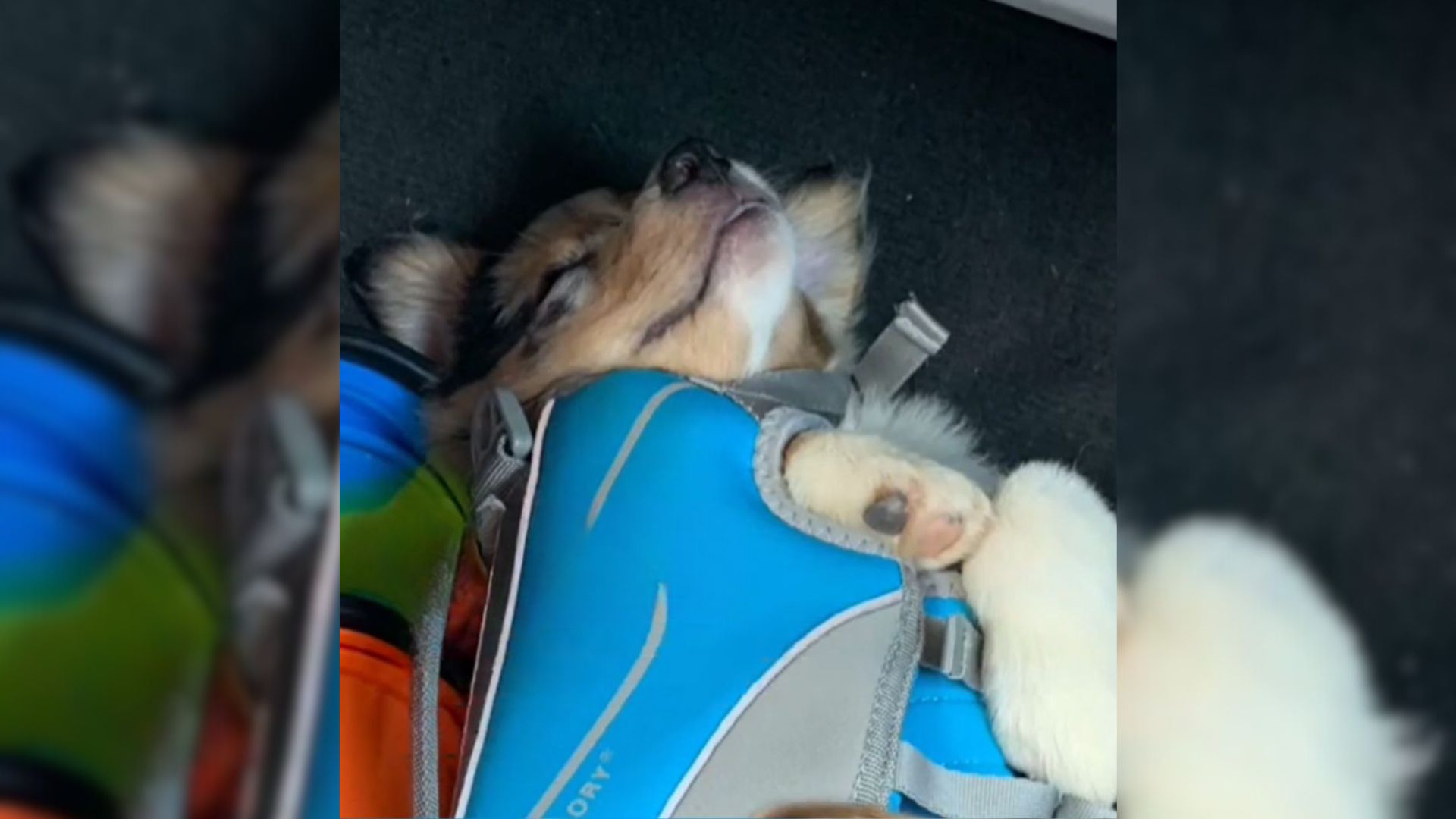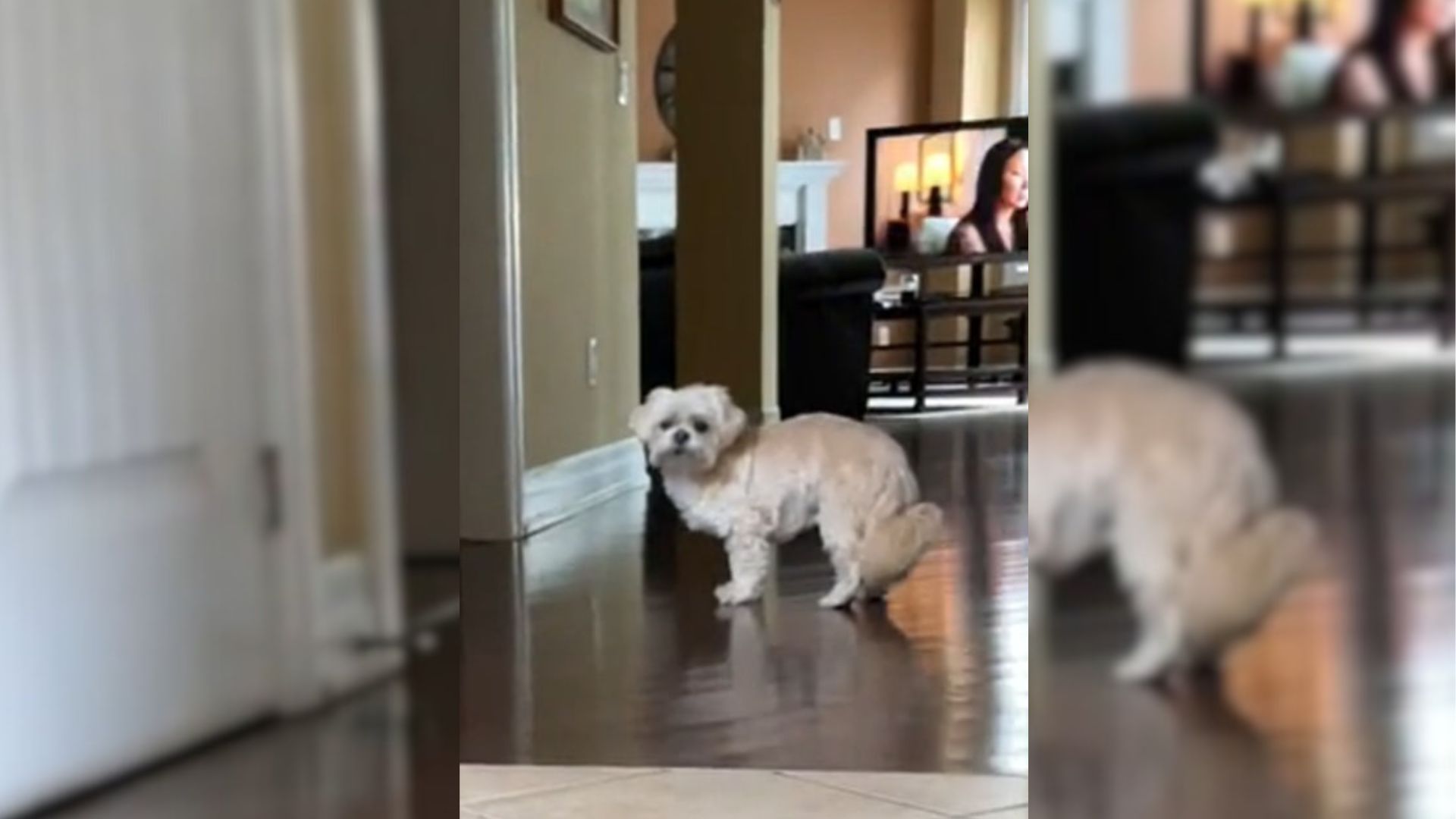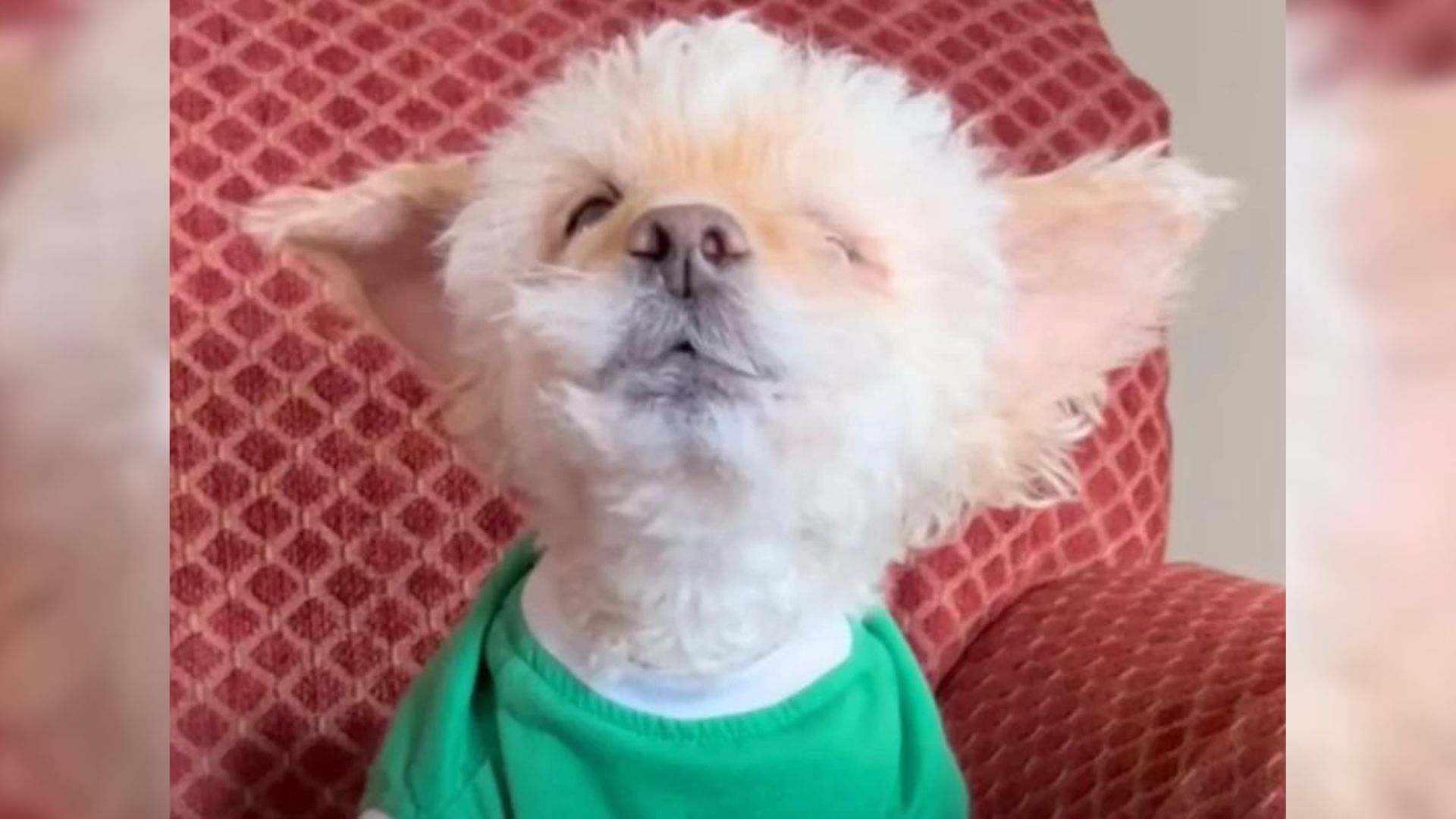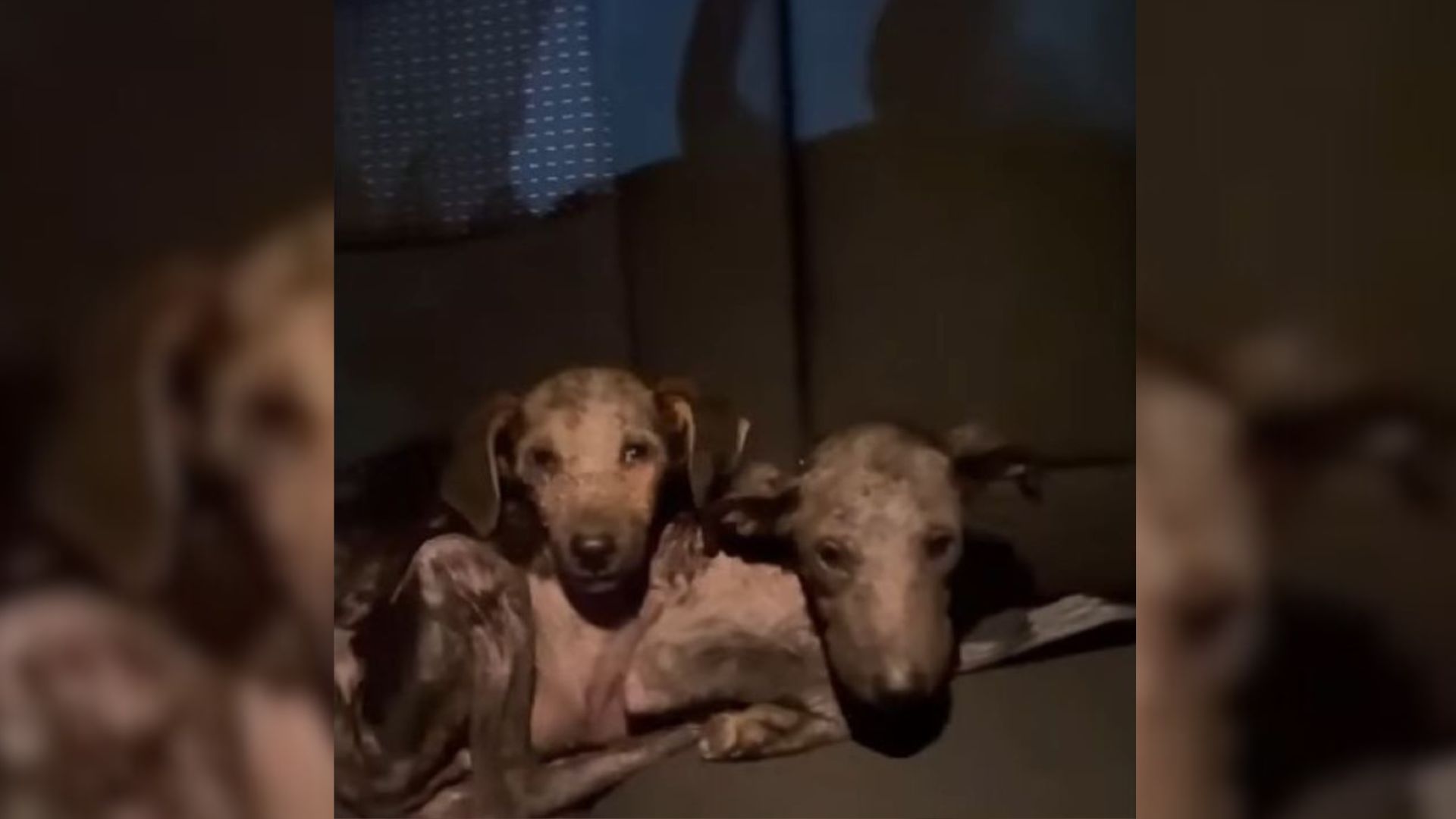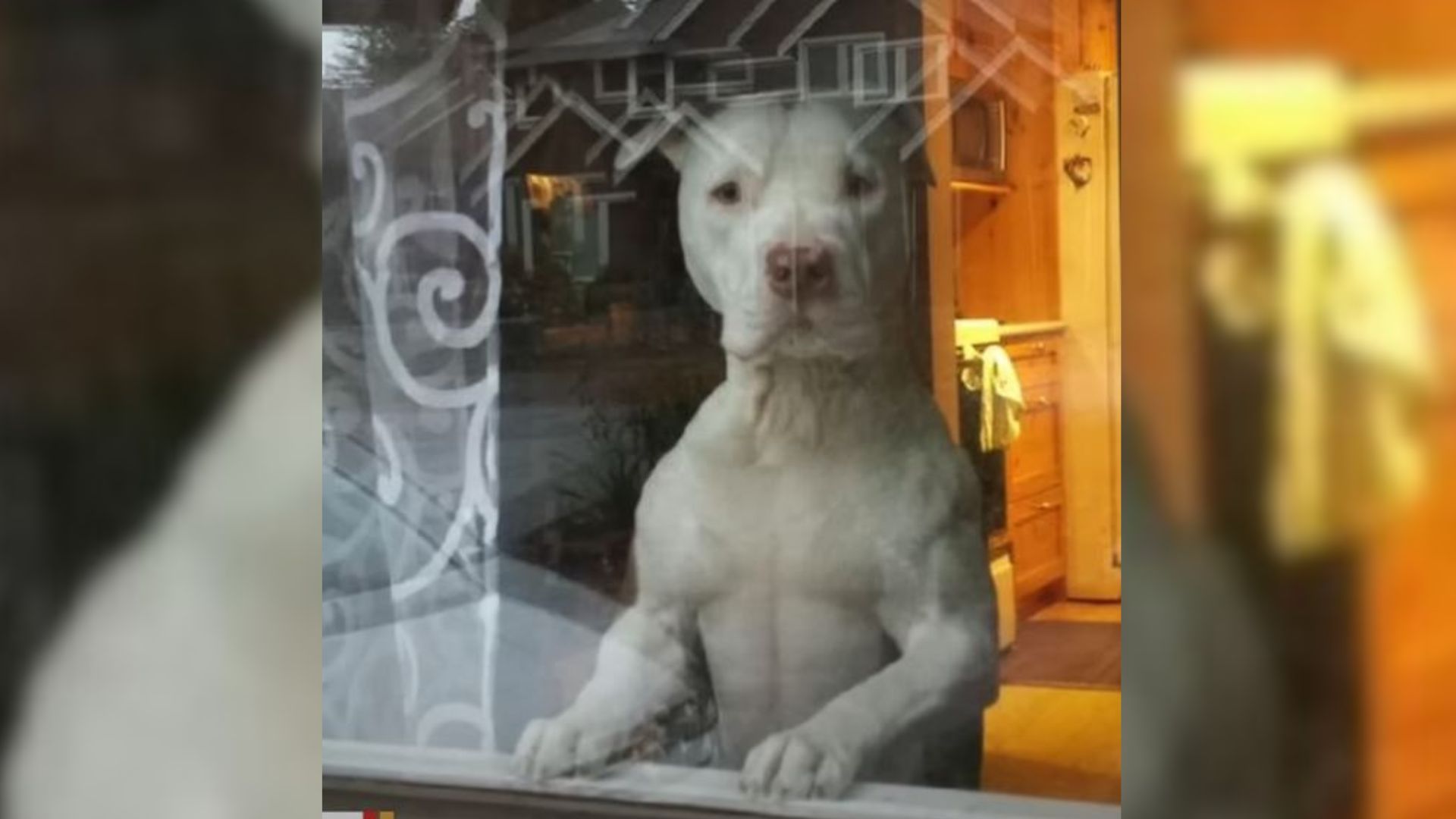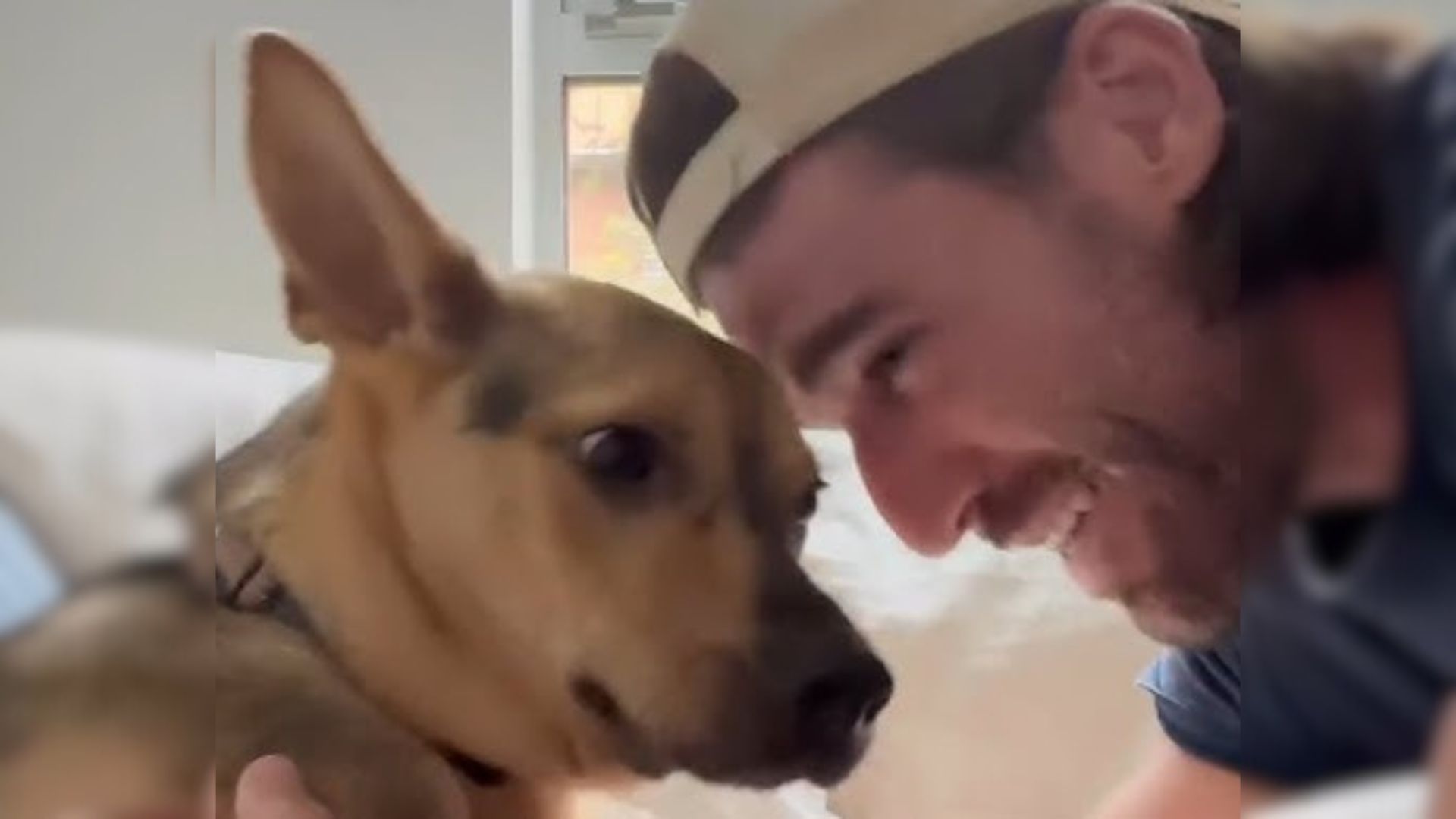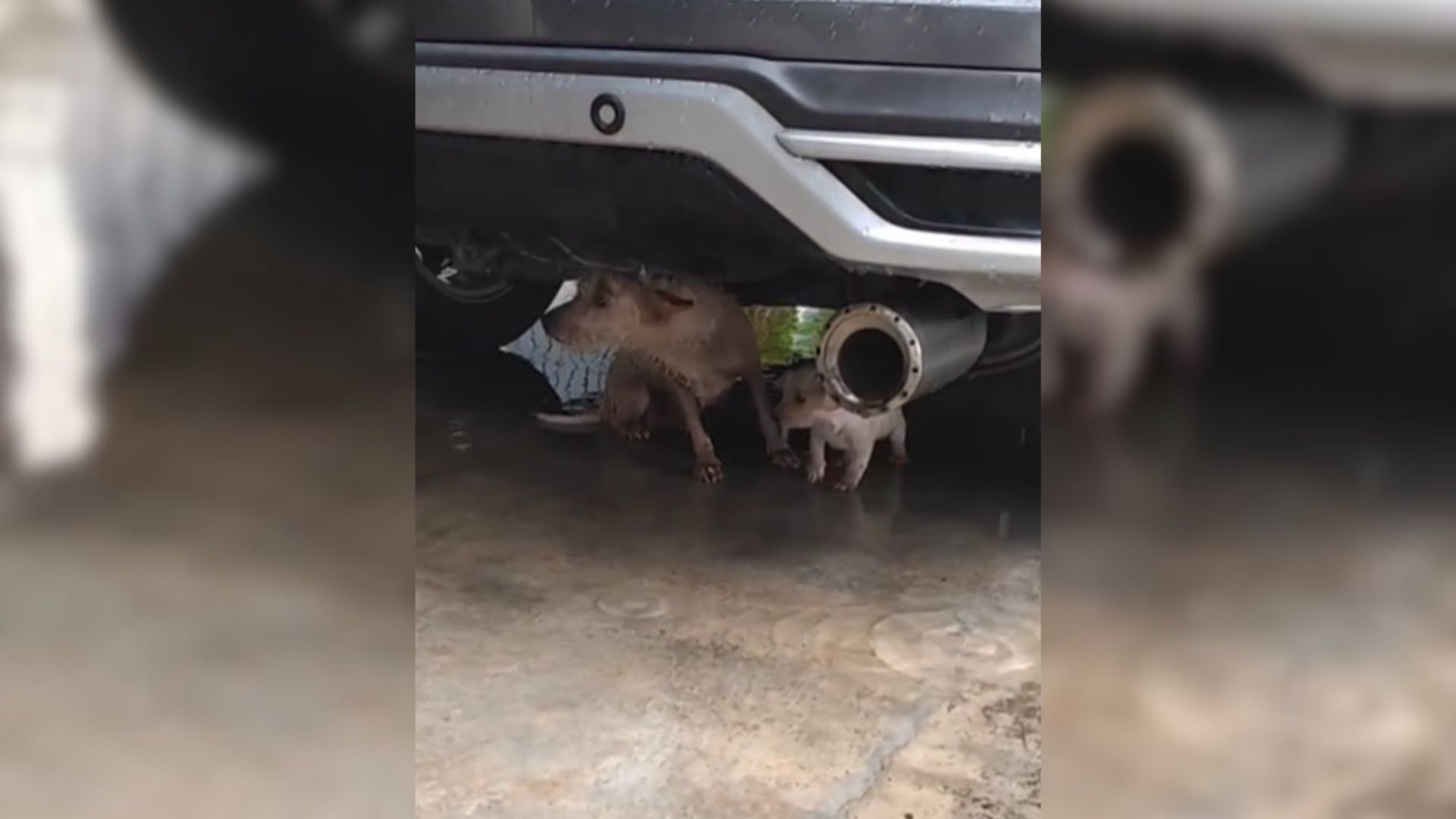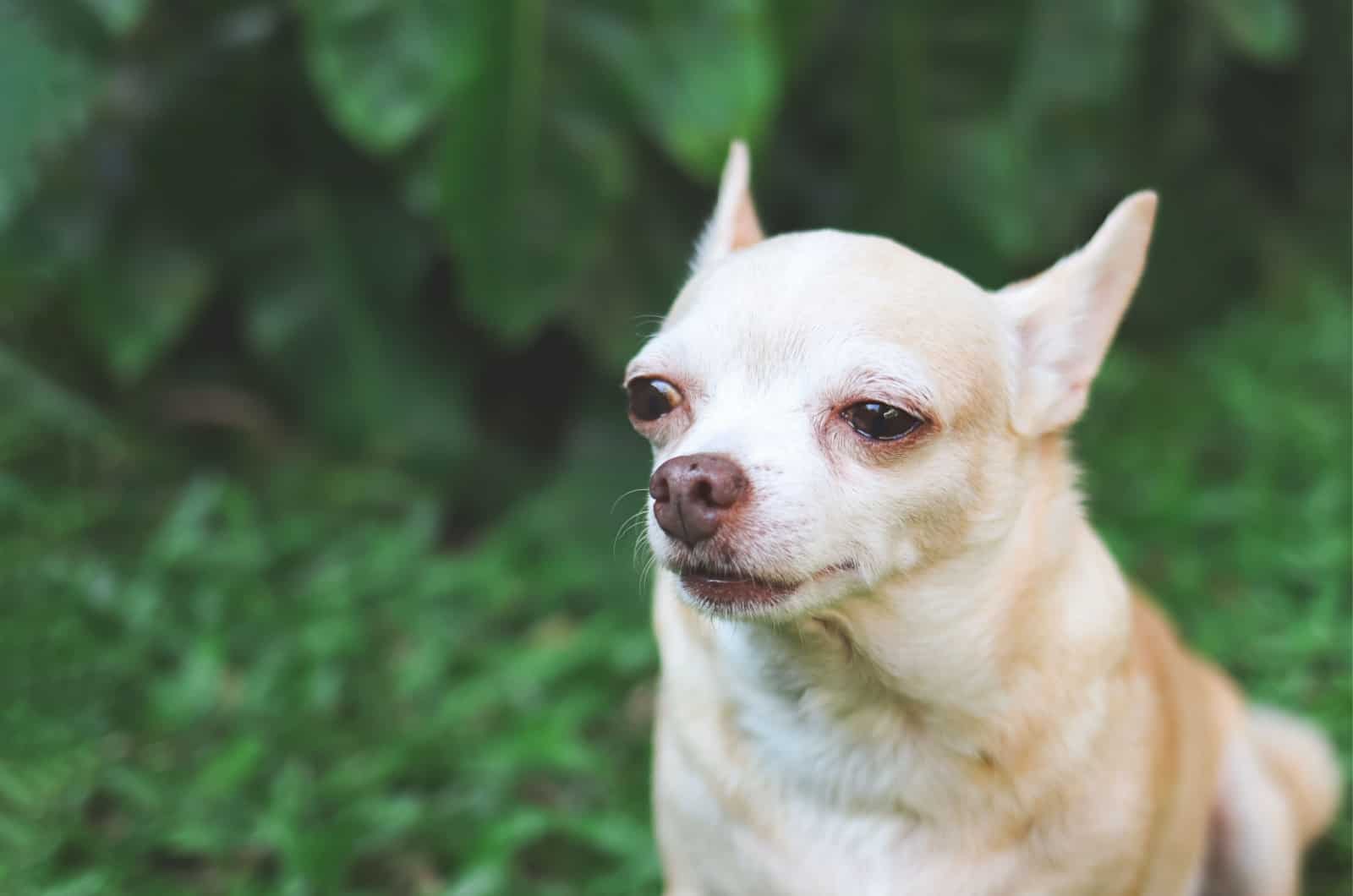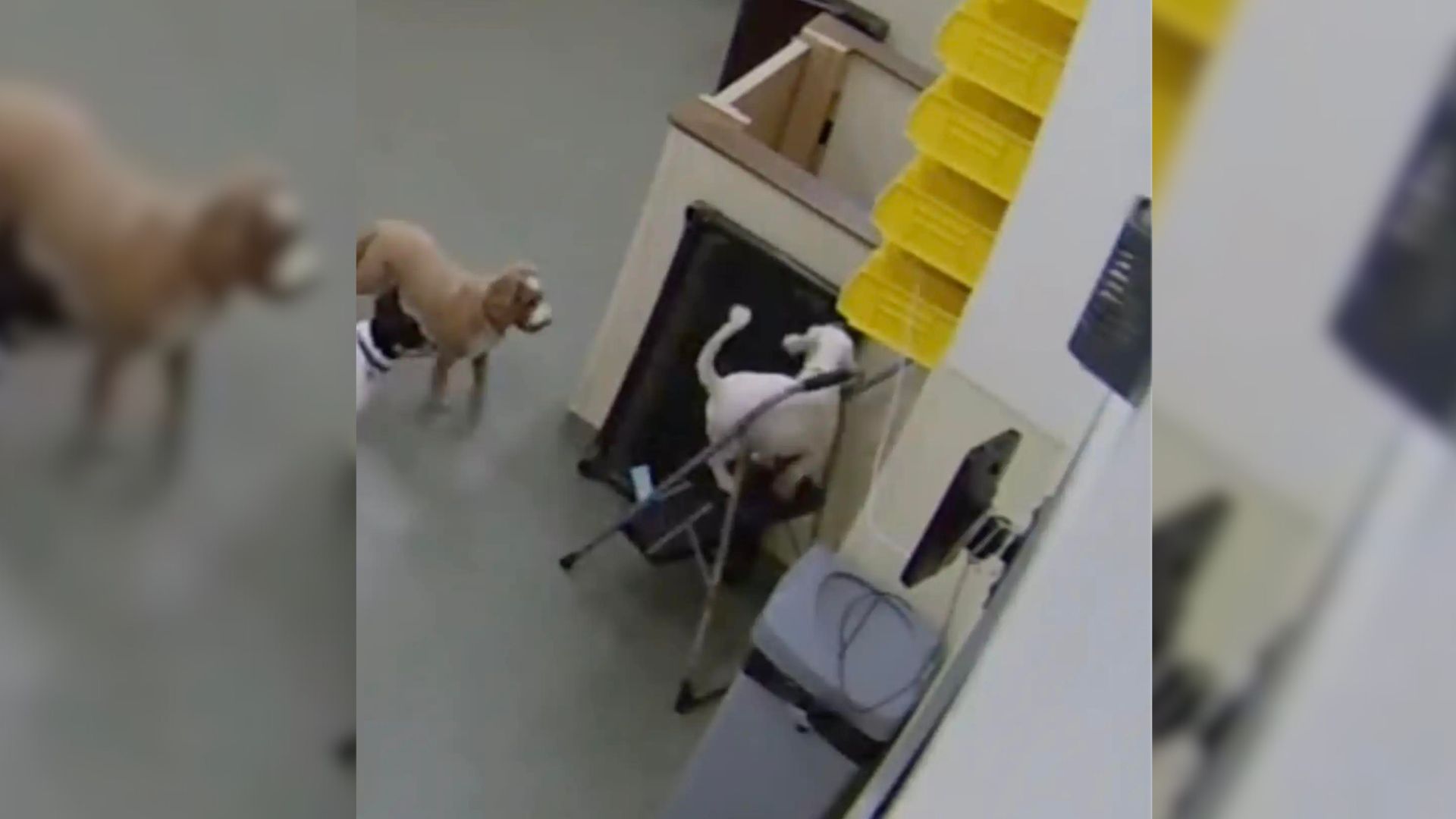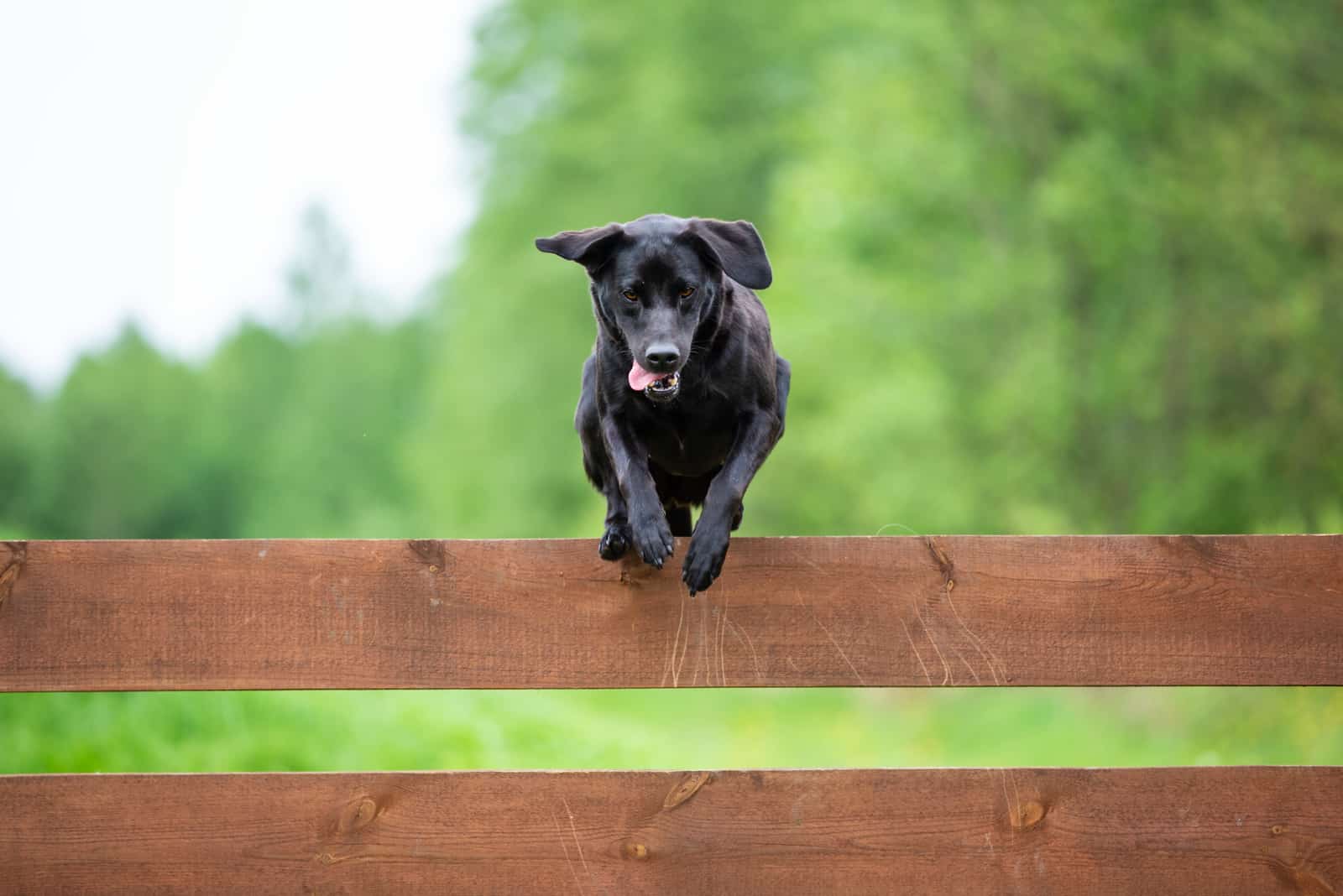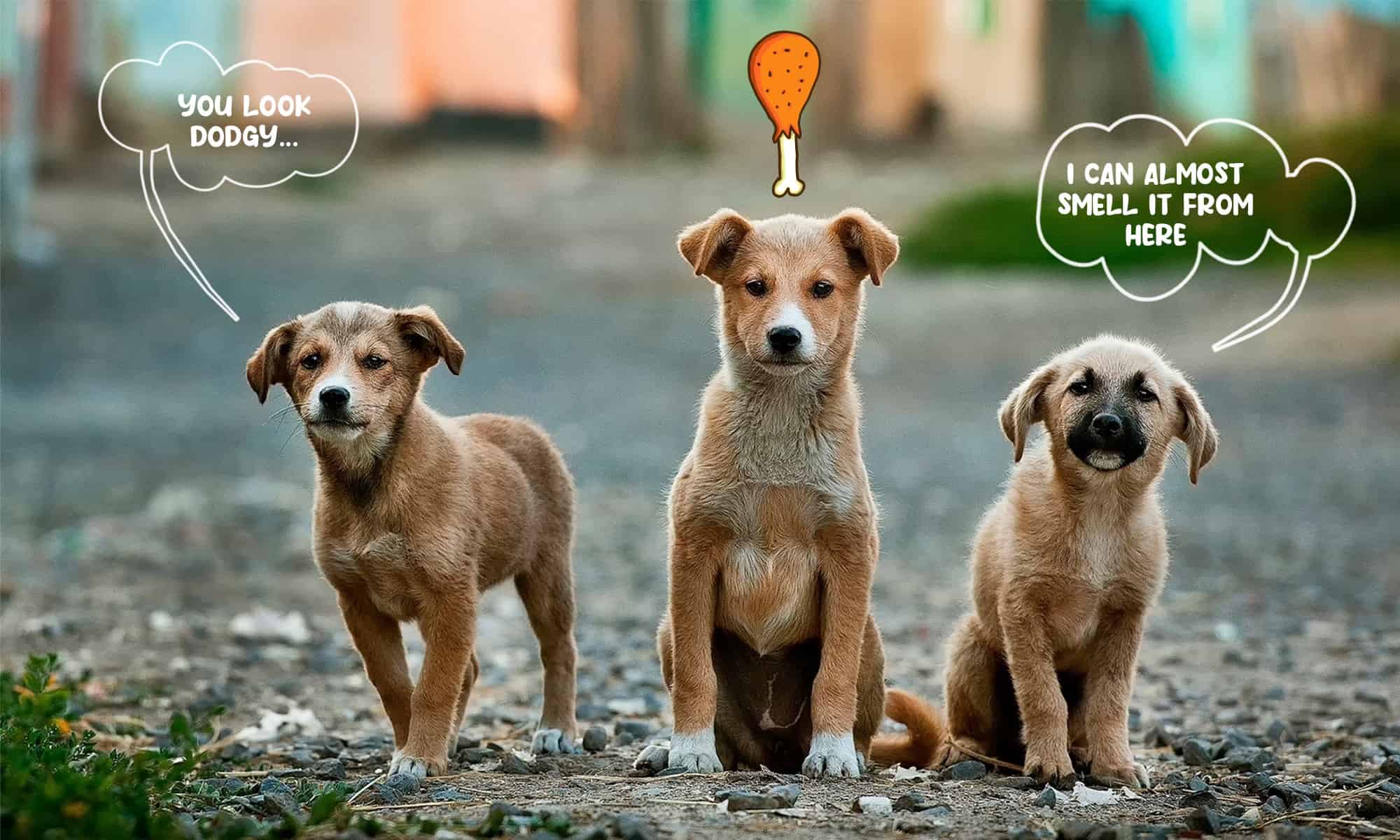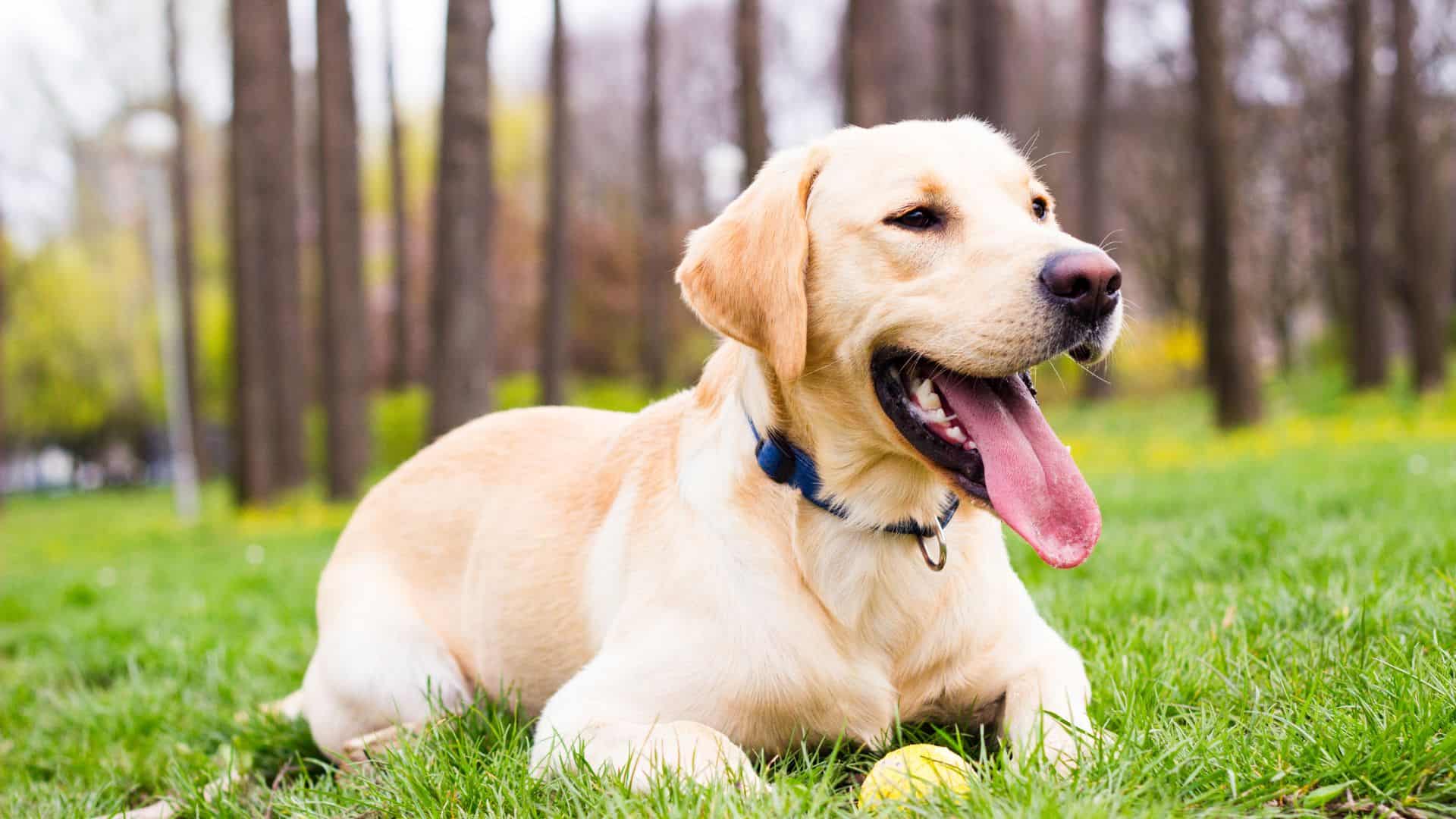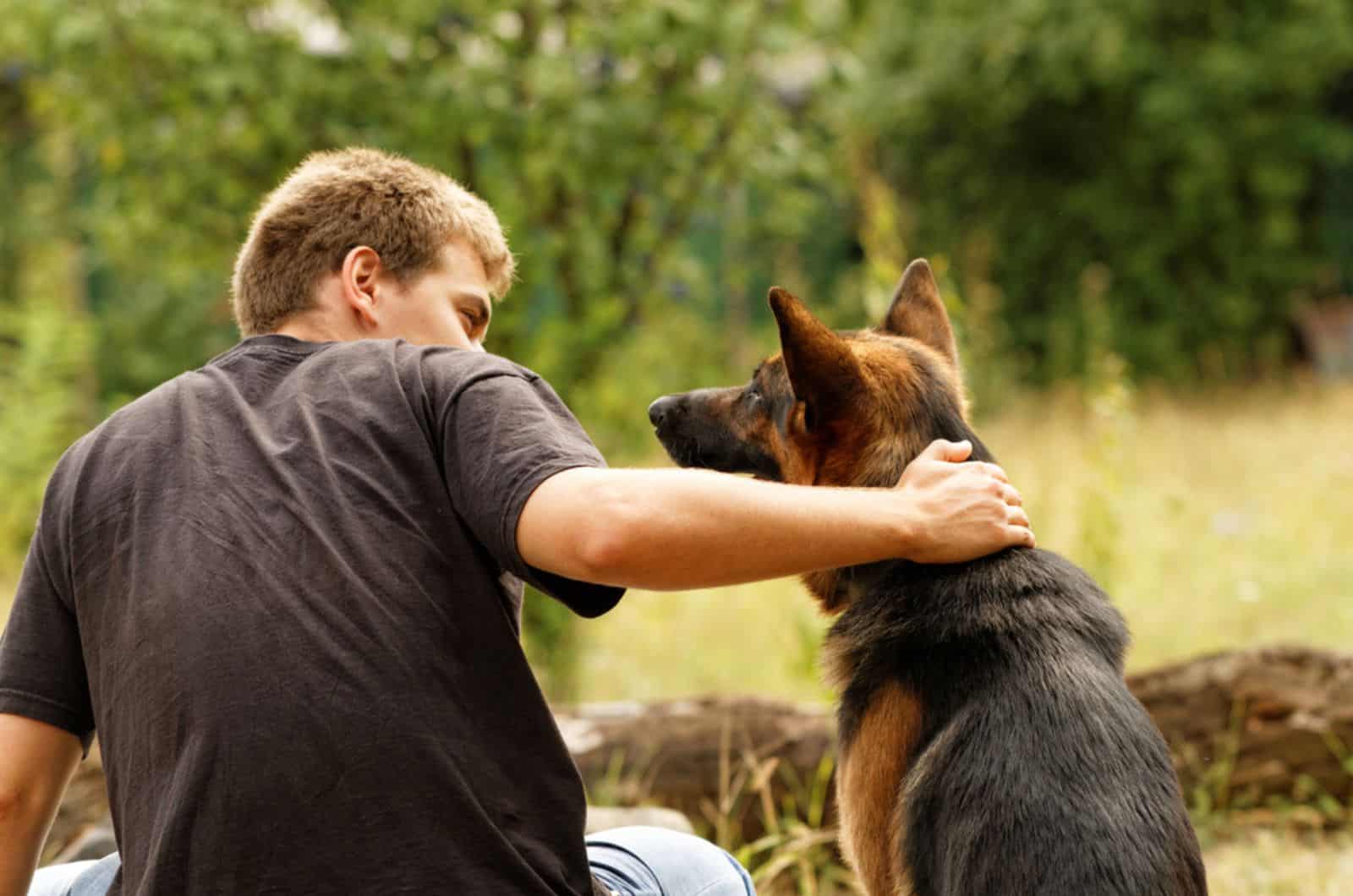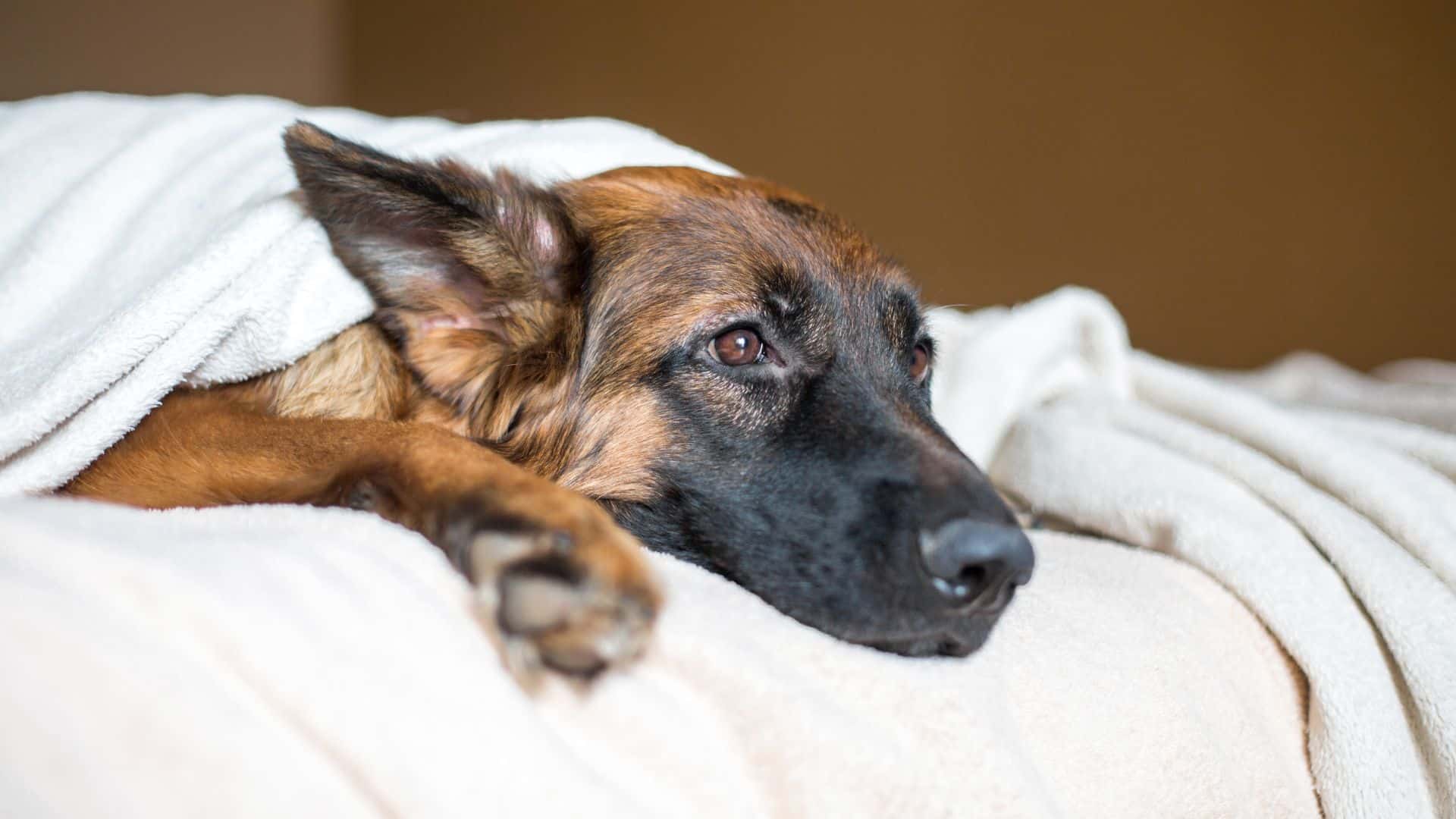Our beloved dogs are the most popular pets in the world, and only we who have them as a part of our family know how much they mean to us.
By now, they have spent hundreds and even thousands of years by our side, and we can understand most of their behaviors.
However, sometimes their behaviors leave us puzzled. But, we need to understand that every dog has a specific personality type, just as we do. For some dogs, eating alone could be terrifying, while for others, it could be the only way they can eat.
These situations are common despite the fact that they might be worrying and stressful. Your dog simply likes to eat beside you; he is not going on a food strike (unless your dog is sick, and that has a whole other variety of symptoms).
His appetite will probably return when you do, and the problem will be fixed. Consult your veterinarian if he doesn’t go back to his regular diet so you can rule out any medical causes of low appetite.
Why Does My Dog Only Eat When I’m Around
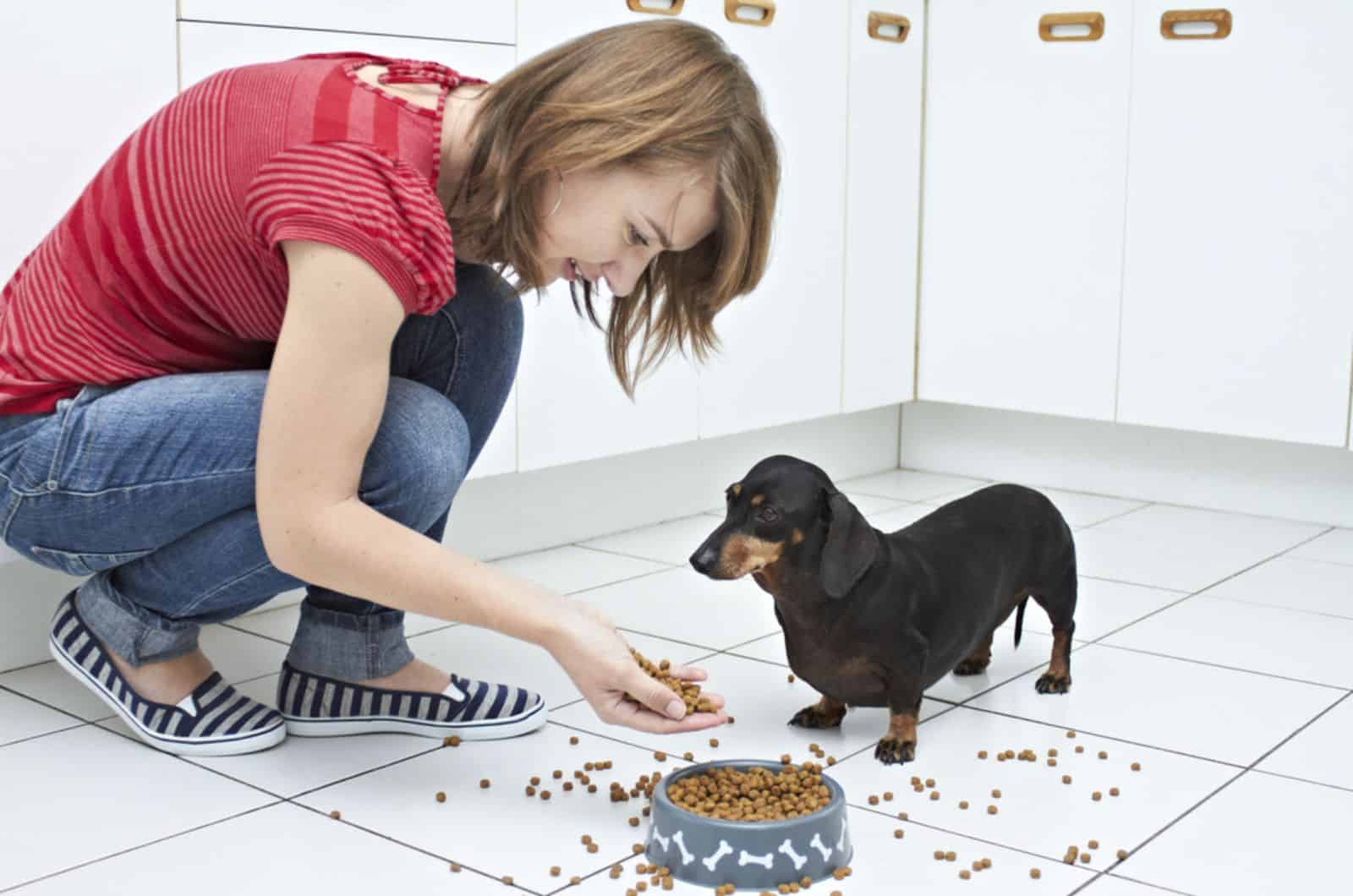
Dogs are domesticated creatures that adore spending time with their loved ones. They follow our habits, and go to bed around the same time as us. They also stroll with us. Occasionally, dogs may even imitate their owners’ body position!
Canines are more personified than we can possibly comprehend, so it is quite normal for them to need constant human company.
Since dogs have been tamed for many centuries, they can become somewhat reliant on their humans. Some dogs will not eat on their own, and will instead wait for their humans to feed them.
There are many reasons why your dog only eats when you’re around, and we will try to explain all of them so you can understand your dog’s behavior better.
1. They Only Feel Safe To Eat Around You
Dogs are the type of animals that always look for reassurance, and a friendly person or another dog to keep them company.
You are probably aware of the fact that dogs used to live in packs, and that is the natural way of living for them. The theory of dogs originating from wolves is completely true; therefore, many wolf behaviors are still present in our modern-day canines.
Dogs are pack animals, and as such, they are most comfortable when they are with their pack and among them.
They feel at ease because of the consistency, discipline, and organization. Every one of your loved ones has a position in the pack order that exists in your home, which is preferably led by you as the alpha.
One of those wolf-like behaviors is hunting and eating together with other canines in the pack. Most of them do not really enjoy eating alone since it’s not something that is usual for them.
Another thing, or privilege, we may say, is the feeling of being protected since there are numerous other dogs that they perceive as family around them. What usually happens when one is eating is that others will guard the wolf that is eating at the moment.
Sometimes, dogs miss that feeling, and they can feel it whenever you are around them. That is also a compliment to you because they see you as their pack leader who makes them feel safe enough.
Even if there aren’t any threats that are waiting to take an opportunity to attack your dog in your secured home, or in your back yard, our dogs still experience this feeling because they can’t get rid of this inherited fear, or even instinct.
2. They Won’t Eat Unless You Eat, Too
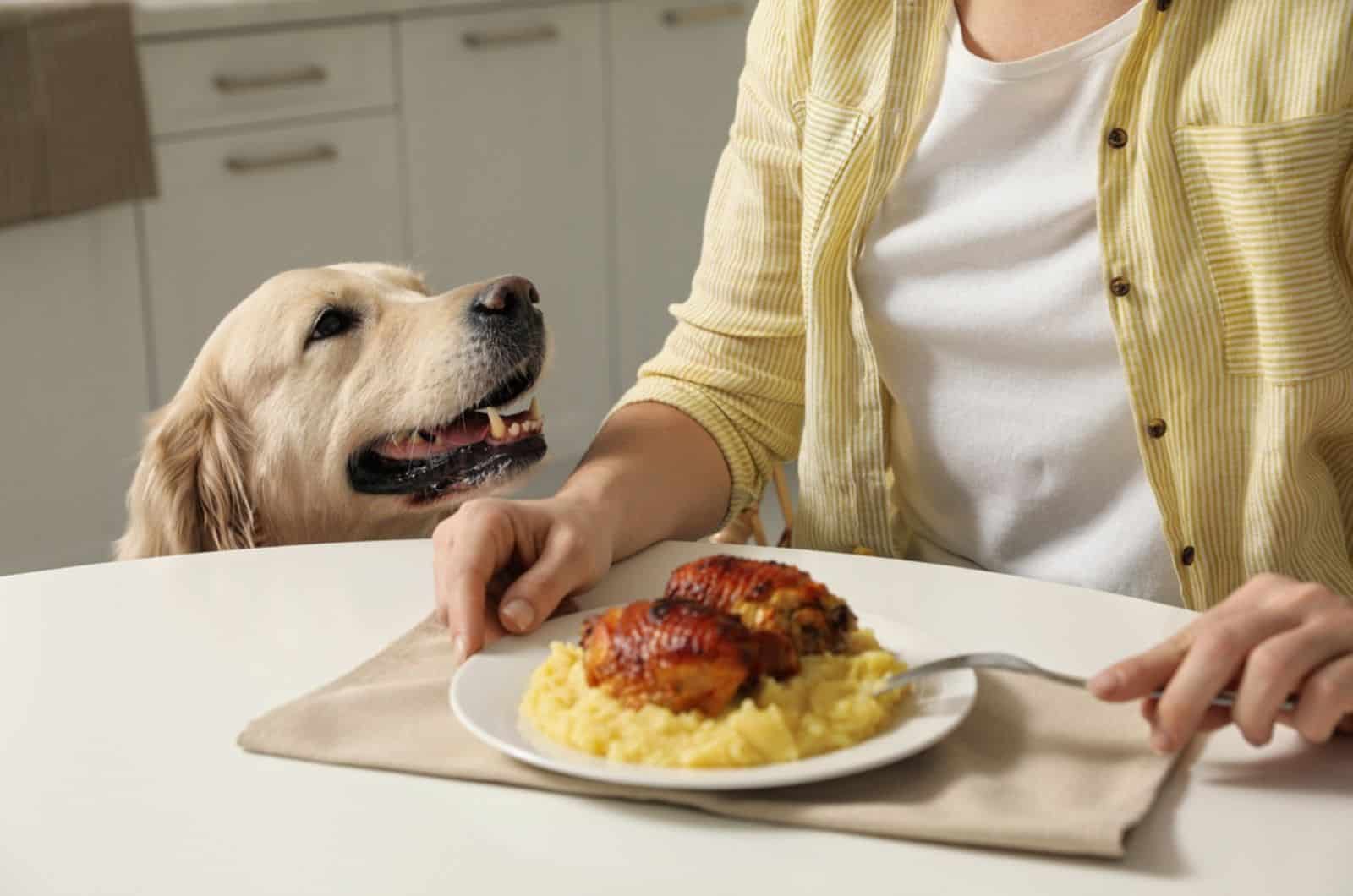
This one goes in the basket of learned behaviors, where you have probably unintentionally taught your dog to eat only when you are around.
This often happens when you have your first puppy, and you spoil them so much that they just don’t want to do anything if it is not near you, not to mention eating without you.
When you sit down to eat with your pet, your strong attachment with them may come into play, and even more so if your dog had already grown accustomed to receiving behavioral rewards for eating.
Particularly, if the dog has a background for being a choosy eater or has had decreased appetite for food, owing to serious acid reflux, some owners build a bond with the dog through food.
In certain circumstances, owners will experiment with the foods they give their dogs, encourage them verbally, occasionally worry, and invest a disproportionate amount of emotion in the process. To some, this is a weird behavior, but trust me, it is absolutely not.
This also has to do with the fact that they see you as their pack leader, and the fact that they won’t start eating unless you do. This resembles wolf-like behavior, where the pack members that are lower on the list won’t start eating until the alpha of the pack is full.
It might also be a thing of emotional comfort because dogs might simply feel better with you around, which makes them feel more relaxed, so that they can eat peacefully.
3. They Associate Food With Your Presence
One thing is for sure – our dogs know that the food they have comes from us, and that we are the only providers of their daily meals.
Whenever food is involved, so are we. Our dogs know that the only way of them having access to their delicious food and treats is by us… their owner.
So, whenever they think of food, they think of us being there, too. Our dogs might be associating food with our presence, and that might be the reason why our dogs eat only when we are around them.
We have already established that our beloved canines are used to being in company in all of their activities, including hunting and eating whatever they have hunted down.
They see us as the pack members that go to hunt (a.k.a., that earn money to buy the food), and they get served with whatever we hunt for them.
This aspect of our presence during their mealtime might be their innate desire to be surrounded with other pack members, and to enjoy some social interaction, which is highly present in households that only have one dog.
Eating as well as going potty are the two most vulnerable states that our canines might be in (as they perceive it to be). And, when you are the most vulnerable, it is better to be surrounded by someone who you feel comfortable with and who you feel safe with.
And, you know what else? Our beloved canines might be enjoying our attention so much that they will unconsciously beg for our attention by not eating if we don’t pet them. How sweet is that?
4. They Have Separation Anxiety
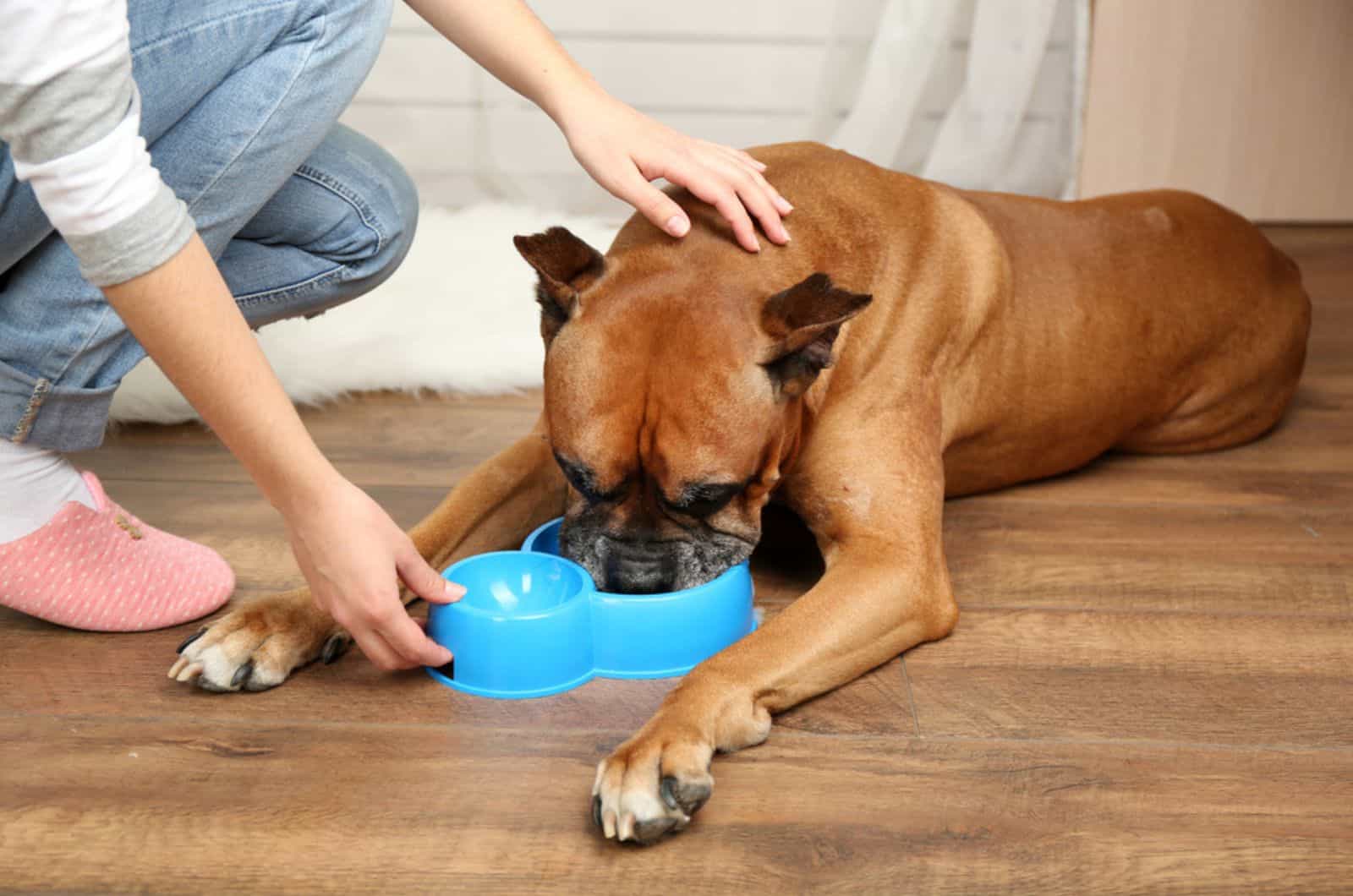
Separation anxiety can develop into a very challenging issue to deal with, and the attitudes that result are often challenging to change. When your dog refuses to eat while you are away from the house, and you suspect separation anxiety is to blame, it is critical to take immediate action.
This is another typical cause for a dog that only eats when his master is there. Your dog could get too tense to eat if it becomes anxious after you leave for work.
Your dog most certainly has separation anxiety if you observe that he refuses to eat from his bowl while you are away, but then eats readily once you get home.
Thankfully, there are lots of things you are able to do to assist your dog get over separation anxiety. You might even leave the radio or the TV on while you’re absent to make your dog feel a little better and encourage it to eat.
Other behaviors are sometimes observed as well, such as wailing for a prolonged amount of time, biting, urinating indoors, and destroying or ripping up household objects or belongings.
To check if your dog’s lack of appetite is the only symptom, you can record him while you are away from home.
Sometimes, anxiety drugs might be prescribed by your vet to assist your dog to unwind even when you’re gone, which might make it simpler for him to get hungry and act on it.
It is highly advised that you work with a trained behavioral specialist to completely assess what is happening, and rehabilitate your dog if his behavior is out of control before it worsens.
5. They Have Learned To Be Hand Fed
If your dog exclusively consumes food from your hand, it’s probably because they perceive it to be safer, or you have maybe taught your dog from a young age to be hand fed.
This way of feeding, which involves you being around, might have started because you have a multiple-dog household, where your dog might have been feeling the urge to always fight for its food.
The competition for food can be fierce in a home with multiple dogs. Additionally, some dogs find it upsetting to eat from the bowl, so they would rather eat off your hands.
Hand-feeding is a wonderful method to develop a trusting relationship with your dog. They are relaxed and secure with you because they recognize you as the source of their food. Try hand-feeding your dog for a few days if it won’t consume food from its bowl.
They might eventually change and resume eating on their own. In either case, there is no need to be concerned because your dog sees your palm as a secure location to eat from.
6. They Might Have Gotten Accustomed To Begging For Food
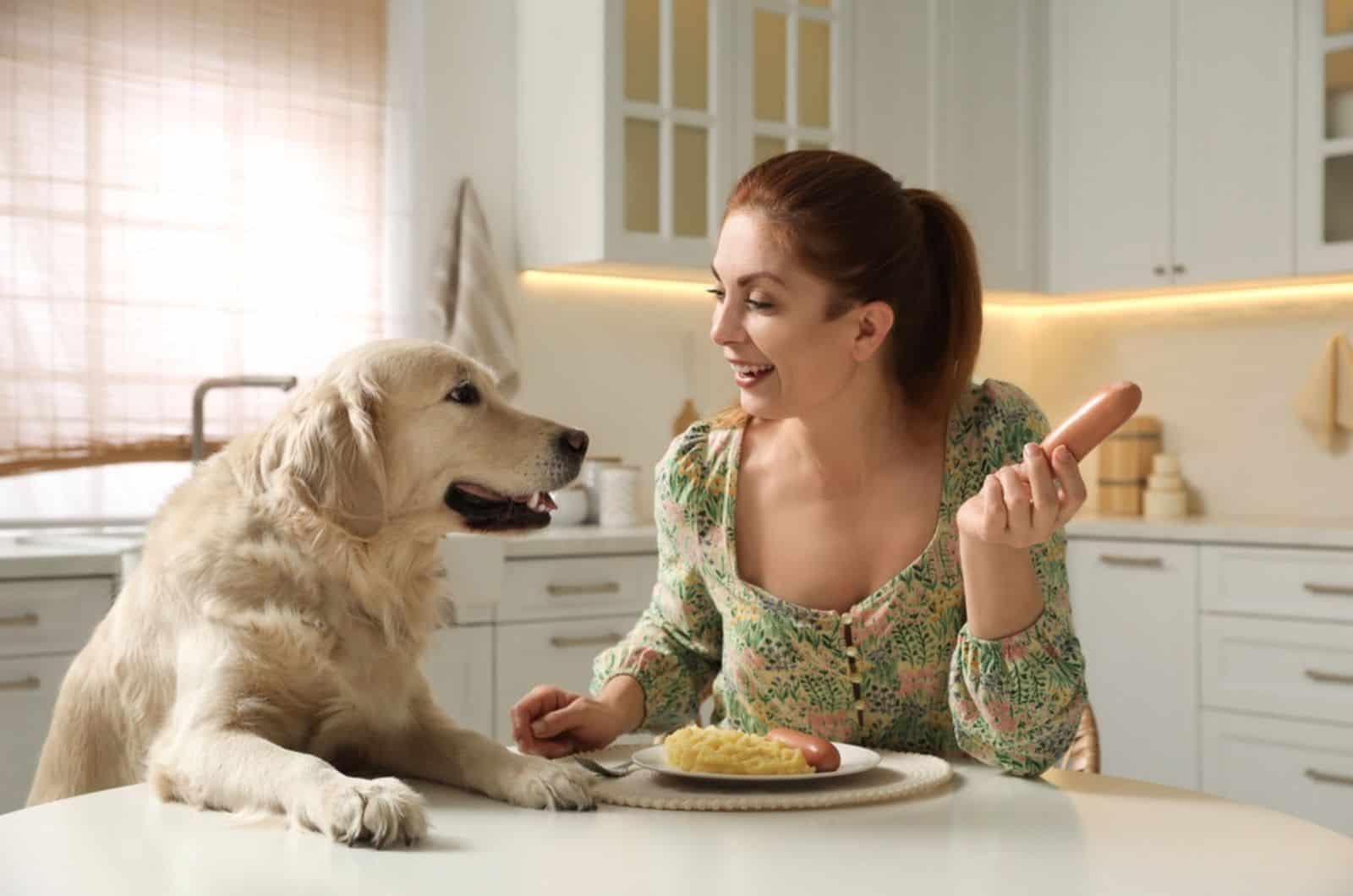
This is often the case when you adopt a shelter dog. Shelter dogs usually have a past that is not the best, and it often leaves some scars on their precious little soul.
Sadly, it is often the case that shelter dogs were abused, mistreated, and left to be on their own for longer periods of time, which made them try to get by.
They were probably living on the streets, begging strangers for food, or more often, stealing food. Now, when they don’t have to beg for food, they feel much better; however, there is probably still a part of them that connects a human being present and feeding time.
Therefore, many adopted dogs usually need to have someone to be around for reassurance and encouragement whenever they are having a meal. Learned behaviors are quite difficult to unlearn!
If your dog has a background where they have been food deprived in any sense, their instinct would be to beg you to have some food. I know this is sad… it breaks my heart, too.
Another case might be that your dog will do a bunch of tricks (even if you don’t command them to do so), just to get an extra bite, or preferably, an additional meal.
Therefore, they might have been accustomed to begging for extra food, and you might have been giving them that extra snack!
Read more about: 11 reasons why your dog eats grass like crazy
7. They Need Encouragement
We can agree upon the fact that there are different love languages, right? Well, your dog might just have the word “praise” as its favorite love language! Sounds interesting, right?
Your dog might just well be the type of dog that enjoys being praised, and enjoys eating with you around. They might have been accustomed to this type of setting, where you have always had to command them to eat since there are dogs that just don’t like to eat as much.
However, this problem might as well be a little deeper than that. Dogs that need encouragement to eat can also be having some underlying health issues, such as some dental problems, or they might be having a lack of appetite.
Usually, dogs would sell their soul for an extra bite, not to mention the whole meal. If your dog is the one that gets extra excited when it is food time, and all of a sudden won’t eat unless you encourage them to do so, it would be better that you visit your veterinarian.
Some dogs just don’t like leaving your side, and always need your encouragement.
8. They Are Less Distracted When You Are Around
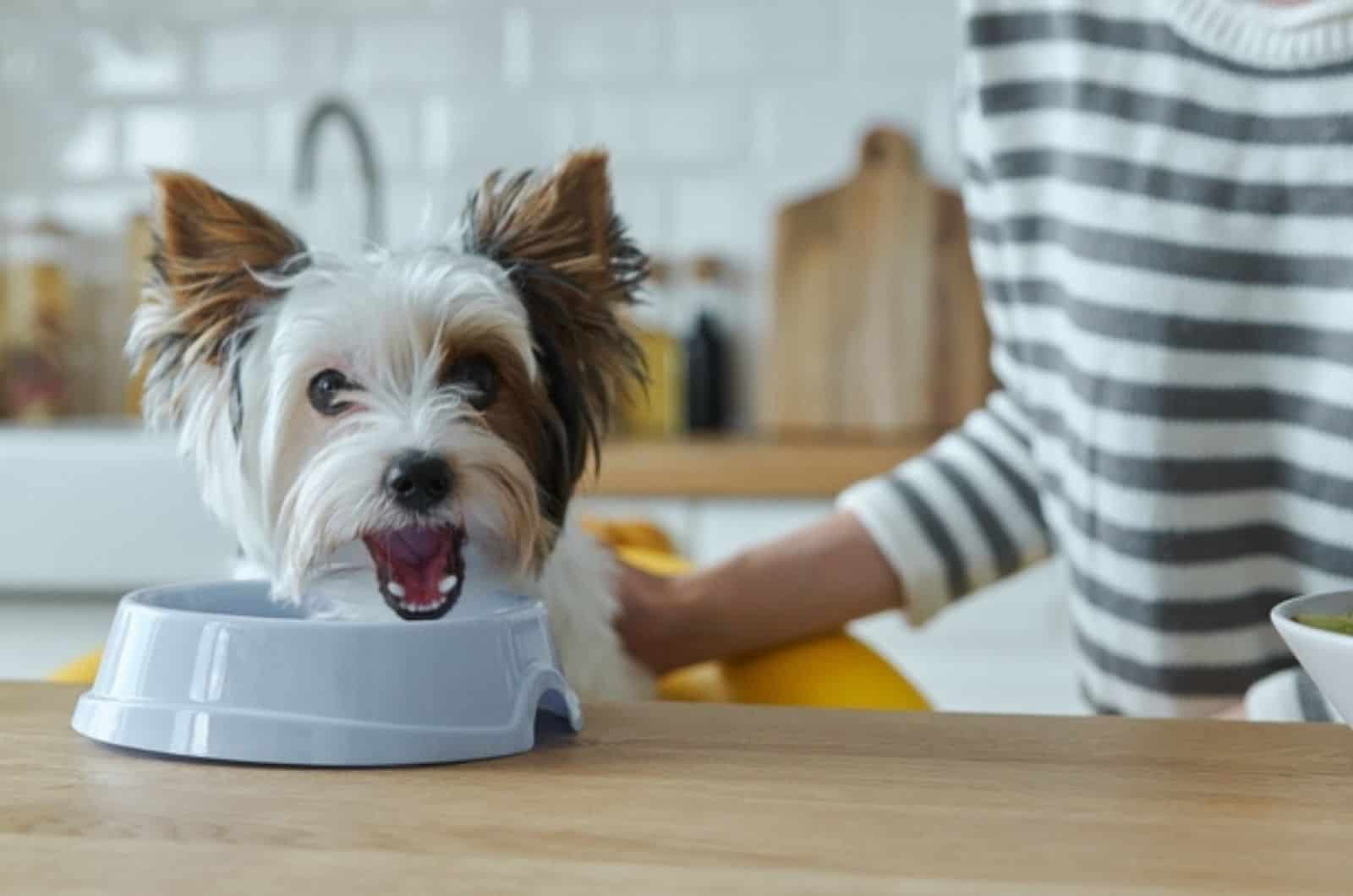
This notion revolves around the fact that your dog feels safer and more secure when you are around them when they eat.
When you are there, they don’t feel the need to guard the house, watch if any predator is after them, if another dog is going to attack them, or if an intruder is sneaking around the property because when they are eating, they trust you to take care of that for a few minutes (or seconds).
When you are around, your dog feels the relief of not needing to be scared of something bad happening; therefore, they will be relaxed enough to eat.
This is a great sign for you because when you are away, your dog does not have the time to eat because it is guarding your house and your property, and you, as the leader of the pack, are giving them that leisure to have a meal, and to take care of guarding while they are eating.
Final Word
Your dog may choose to consume food from your hand rather than their bowl for a number of different reasons.
It’s possible that they don’t like the bowl, are bored, or are already full from treats. Sometimes, your dog might prefer to eat off your palms rather than their bowl for no apparent reason.
Regardless of the cause, the next time your dog begins to whine for food, stop and consider what they might actually be trying to tell you. They may only require a little amount of attention.
Dogs might not always possess etiquette, but they perhaps were taught to wait for you before they eat either as a form of respect for you or because they picked up the habit from you.
Due to their social nature, dogs may simply not be interested in eating when left unattended, and therefore, will munch once you return.
Some dogs are too tense to really settle down and eat a meal. This could be due to separation anxiety or the fact that they are more concerned with defending their territory. You shouldn’t be overly alarmed if they eat as you arrive back, and show no other signs of distress.
To rule out any underlying psychological or medical issues, it is recommended that you speak with a vet if they are displaying other bad behaviors.

